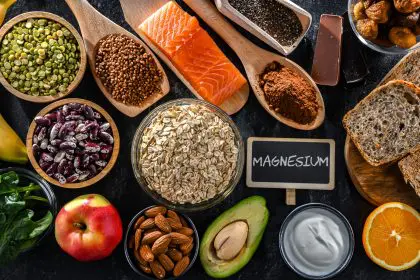High blood pressure, also known as hypertension, is a severe health condition that affects millions of people worldwide. It significantly increases your risk of heart disease, stroke, kidney failure, and other health problems. While medication plays a crucial role in managing high blood pressure, dietary changes can be equally effective in lowering your blood pressure and improving your overall health. This is where a registered dietitian becomes an invaluable partner in your journey towards better blood pressure control.
Understanding the power of diet for blood pressure management
Diet plays a critical role in managing high blood pressure. Specific dietary patterns and food choices can directly impact your blood pressure readings. For instance, excessive sodium intake is a well-established risk factor for high blood pressure. Conversely, consuming a diet rich in fruits, vegetables, whole grains, and low-fat dairy products has lowered blood pressure.
A registered dietitian (RD) is a qualified healthcare professional with specialized nutrition and food science training. They possess the knowledge and expertise to create personalized dietary plans catering to your needs and preferences. By consulting with an RD, you can gain valuable insights into how food choices affect your blood pressure and develop a sustainable dietary strategy for optimal management.
Benefits of consulting a dietitian for high blood pressure
Consulting with a dietitian offers many benefits for individuals with high blood pressure. Here are some key advantages:
-
Personalized meal planning: An RD will assess your dietary habits, food preferences, lifestyle factors, and medical history. Based on this comprehensive analysis, they create a personalized meal plan that aligns with your needs and tastes. This ensures you receive the necessary nutrients while adhering to blood pressure-lowering dietary principles.
-
DASH diet expertise: Dietitians are well-versed in the Dietary Approaches to Stop Hypertension (DASH) diet, a scientifically proven diet specifically designed to lower blood pressure. They can guide you through the DASH principles, helping you incorporate them seamlessly into your daily routine.
-
Sodium reduction strategies: Sodium is a primary culprit in high blood pressure. An RD can equip you with effective strategies to reduce your sodium intake without compromising taste. They can suggest alternative seasonings, low-sodium food options, and healthy cooking methods to minimize sodium content in your meals.
-
Weight management support: If you’re overweight or obese, losing even a modest amount of weight can significantly improve your blood pressure. Dietitians can provide guidance on healthy weight loss strategies that integrate seamlessly with your blood pressure management plan.
-
Nutritional education: Dietitians empower you with knowledge about the relationship between food and blood pressure. They can explain how different nutrients impact your blood pressure and guide you towards making informed food choices for long-term health.
-
Motivation and support: Making dietary changes can be challenging. An RD provides ongoing motivation and support throughout your journey. They can address your concerns, answer your questions, and help you overcome any roadblocks you might encounter.
How to find a registered dietitian
Finding a qualified dietitian is easy. Here are some helpful resources:
-
Your doctor’s recommendation: Your doctor can refer you to a registered dietitian who specializes in cardiovascular health or hypertension management.
-
Academy of Nutrition and Dietetics: The Academy of Nutrition and Dietetics maintains a searchable database of registered dietitians across the country. You can search for an RD in your area based on your location and specific needs https://www.eatright.org/.
-
Local hospitals and clinics: Many hospitals and clinics have registered dietitians on staff who offer consultations to patients. Contact your local healthcare facilities to inquire about their dietitian services.
Working with your dietitian for optimal results
To maximize the benefits of working with a dietitian, here are some tips:
-
Be prepared: Before your initial consultation, gather information about your current dietary habits, food preferences, and any limitations you might have.
-
Set realistic goals: Discuss your goals for blood pressure control and weight management with your RD. Set realistic and achievable goals to ensure long-term success.
-
Ask questions: Don’t hesitate to ask questions about the DASH diet, dietary changes, and any concerns you have. The more informed you are, the better equipped you’ll be to make positive changes.
-
Be open to new ideas: Be receptive to trying new recipes and food combinations suggested by your RD. Explore new ways to incorporate healthy and delicious foods into your diet.
-
Track your progress: Maintain a food diary to track your food intake and monitor your blood pressure readings regularly. This will help you and your RD assess your progress and make adjustments to your plan as needed.
By consulting with a registered dietitian and following their personalized guidance, you can harness the power of food to effectively manage your high blood pressure
Creating a sustainable dietary approach with your RD
A key benefit of consulting a dietitian is their ability to create a sustainable dietary approach that fits your lifestyle. Unlike restrictive fad diets, a dietitian-designed plan focuses on long-term, healthy habits you can maintain for years to come. This approach considers your cultural background, work schedule, cooking skills, and budget.
Here’s how your RD can help you create a sustainable plan:
-
Accommodating food preferences: Do you love pizza or have a sweet tooth? Your RD won’t force you to give up your favorite foods entirely. They can suggest healthier alternatives or offer tips for incorporating them into your diet in moderation.
-
Building meal plans around your schedule: Are you always on the go? Your RD can create meal plans that are quick and easy to prepare, even on busy weekdays. They can also suggest healthy grab-and-go options or meal prepping strategies.
-
Working within your budget: Healthy eating doesn’t have to be expensive. Your RD can provide tips for grocery shopping on a budget and suggest affordable, heart-healthy ingredients.
-
Incorporating cultural cuisines: Do you enjoy the flavors of your cultural background? Your RD can help you adapt traditional recipes to be more heart-healthy without compromising the taste you love.
By personalizing your dietary approach, your RD increases the likelihood that you’ll stick to your plan and achieve long-term success in managing your blood pressure.
Beyond diet: Lifestyle changes for optimal blood pressure control
While diet plays a crucial role, managing high blood pressure often requires a multi-faceted approach. Your dietitian can also advise you on essential lifestyle changes that complement your dietary modifications. These may include:
-
Regular exercise: Physical activity is vital for maintaining a healthy weight and lowering blood pressure. Your RD can recommend exercises that are safe and effective for you, considering your fitness level and any limitations you might have.
-
Stress management: Chronic stress can contribute to high blood pressure. Your RD can suggest healthy stress management techniques such as yoga, meditation, or deep breathing exercises.
-
Smoking cessation: Smoking significantly increases your risk of heart disease and stroke. If you smoke, your RD can provide resources and support to help you quit.
-
Limiting alcohol consumption: Excessive alcohol consumption can raise your blood pressure. Your RD can advise you on healthy limits for alcohol intake or recommend abstinence if necessary.
By incorporating these lifestyle changes alongside your personalized diet plan, you can create a comprehensive strategy for effectively managing your high blood pressure and improving your overall cardiovascular health.
Conclusion: Partnering with a dietitian for a healthier you
High blood pressure is a serious health condition, but it’s one you can manage effectively with the right approach. Consulting with a registered dietitian empowers you to take control of your health through personalized dietary modifications and lifestyle changes. Dietitians provide valuable guidance, education, and support, helping you navigate this journey with confidence. By working hand-in-hand with your RD, you can develop a sustainable plan that lowers your blood pressure, improves your overall health, and allows you to live a longer, healthier life. Remember, even small dietary adjustments can yield significant results. Take the first step towards better blood pressure control and a healthier you by scheduling a consultation with a registered dietitian today.
This story was created using AI technology.













